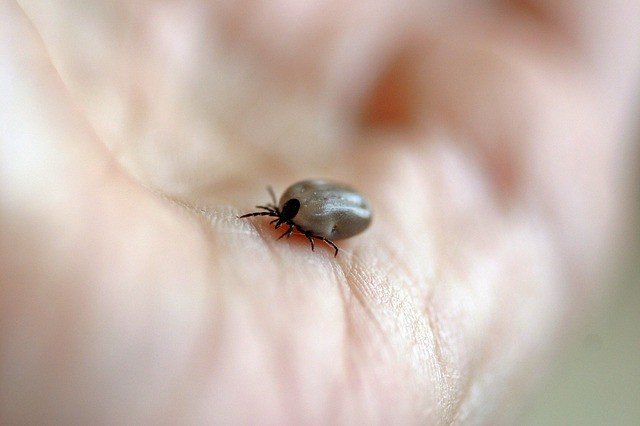Last summer, the agriculture department of New Jersey reported about a sheep affected badly by the Haemaphysalis Longicornis. Just last week, a follow-up report was published by the agriculture department. The report said that there was a slight increase in the number of tick species appearing last summer in the state.
How it all began
Last year in August, a sheep named Hannah was sheared was taken by a farmer to Hunterdon County Health Office. What was alarming in this incident was not the body of the sheep covered with the tick species but the fact that there was no existence of such ticks in the United States before. And this tick species did not belong to any discovered tick species such as Ixodes cookei, Ixodes scapularis, Dermacentor variabilis, Amblyomma americanum and Rhipicephalus sanguineus.

Later it was named as Haemaphysalis longicornis also known as a Longhorned tick. A report suggested that this tick species is found in East Asia like Japan, New Zealand, Russia, and China. Hannah, the sheep affected by this tick did not travel internationally but remained at Hunterdon County Health Office. And therefore, researchers are worried about this tick species’s presence in the US.
The spread of the tick
Researchers said when they first found this tick back in October, they were present in large numbers in the paddock and as soon as the farmer entered the field, these species crawled into the clothes of the farmer. The sheep’s whole body was surrounded by the ticks and had to be sheared.
It was also said that this was the first time this tick was found breeding in the United States and these species do not need to intercourse for multiplying. It is alarming to see such ticks in the United States. When a tick is attached to your skin it numbs the area of your skin using its larva so that you can’t feel its presence and then it starts sucking your blood for days. That’s why ticks always prove figuratively. Ticks can attack animals as well as humans.

According to a paper Emerging Infectious Diseases, these type of ticks can cause severe fever both in humans and animals. In China, this species spreads the virus that causes thrombocytopenia syndrome (SFTS). SFTS refers to a type of disease which causes severe fever along with low platelets.
And the people suffering from SFTS start bleeding, and the wounds take time to clot and heal. Besides the low platelet count and the severe fever which ensues, people suffering from SFTS have low white blood cells and their liver enzyme also increase. According to a study, 30% of the people suffering from SFTS die and that’s how dangerous this tick can be for you.
In Japan, this tick is known for spreading Rickettsia japonica, and which causes disease like Theileria Orientalis in cattle. However, researchers haven’t found any of these diseases in New Jersey. But they fear that some of those diseases can affect the population of New Jersey.
The US response
The New Jersey tried their best to eliminate the presence of ticks found in that sheep. They bathe the sheep with chemicals, monitor the area where the ticks attacked the sheep and cut down the tall grass from that area. On Friday, The New Jersey Agriculture department said these ticks had survived the winters.

In the northeastern United States, New Jersey is the most affected area by the tick producing disease. This state has the highest number of Lyme Disease cases and 13.8% cases were found in 2015. Other diseases like babesiosis and anaplasmosis have also occurred in the state and these diseases are spread by the black-legged tick. The story does not end here, another type of tick that is found in large numbers in the New Jersey are brown dog ticks which cause Powassan encephalitis virus.
The incident of ticks attacking a 12-year-old Icelandic sheep has put the researchers under a lot of pressure, as the state is already dealing with other types of tick species. The scientists are worried about that how the ticks had entered the state as the sheep never traveled outside the United States.





